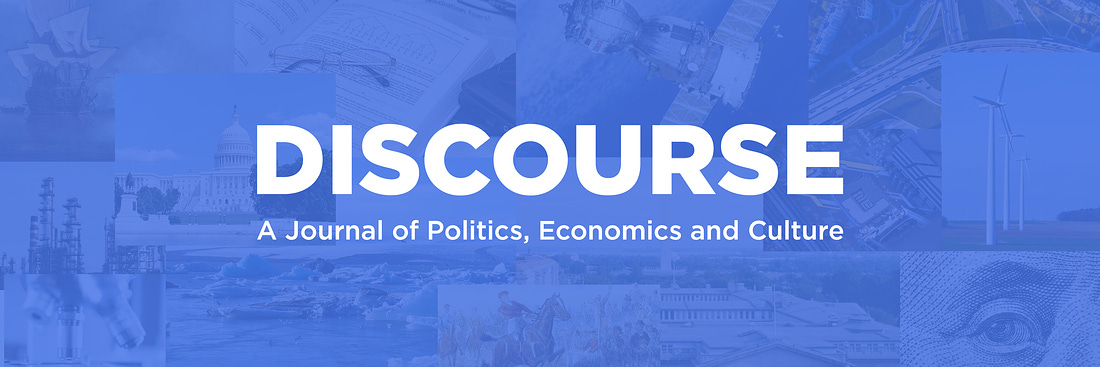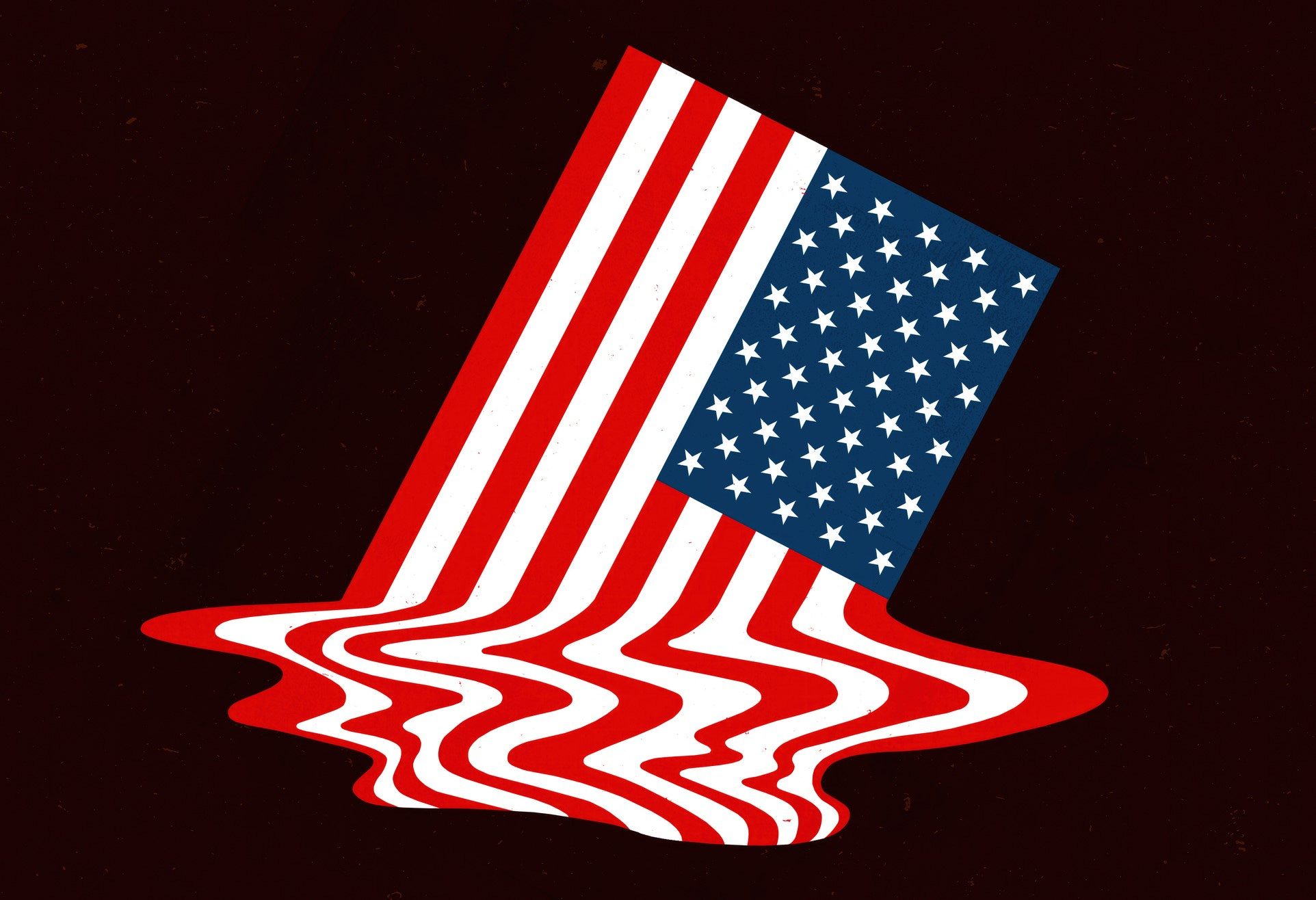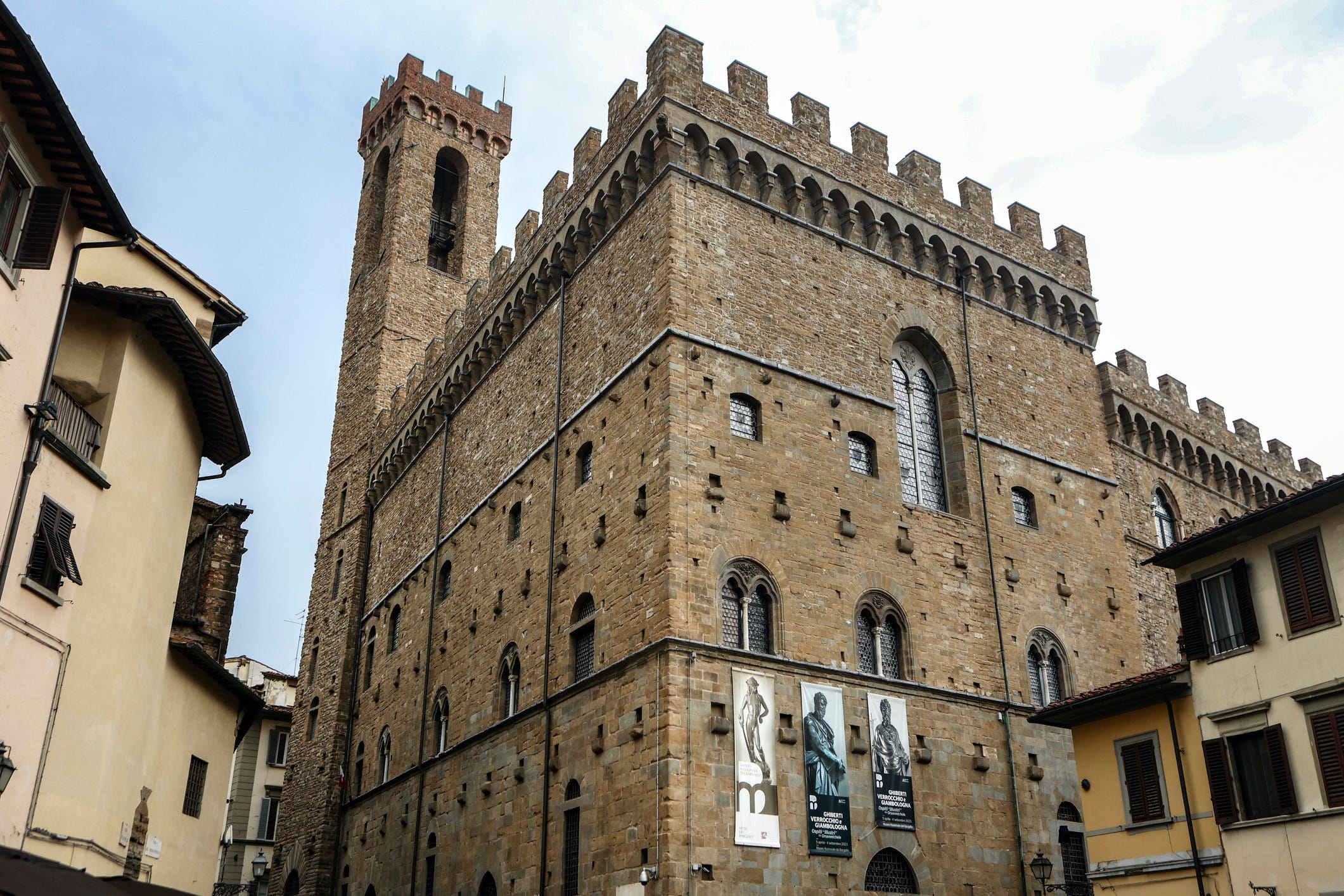|
 |
The Wages of Fecklessness
In this week’s Editor’s Corner, David Masci argues for the need to restore American deterrence
Amidst the widening gyre of violence and chaos in the Middle East and the slow, deadly grind of the Ukraine-Russia war, it’s easy to forget that there is trouble elsewhere in the world. From the waters off the Philippines to Africa’s Sahel region, from Bangladesh to Central America, the forces of disorder are on the march. The problems of these other places occasionally and briefly catch the notice of Western media and policymakers, only to quickly sink back into the murk of inattention, at least until another incident or outrage arises.
Among the little-noticed but troubled areas that deserve more attention is the long-festering wound that is Venezuela. The oil-rich nation, once Latin America’s richest country, has suffered through decades of economic mismanagement and political corruption and violence. The past 20 years have been particularly bad, first under the dictatorship of the late leftist demagogue Hugo Chávez, and more recently under the reign of his handpicked successor, Nicolás Maduro. In July, Maduro stole his second presidential election, ignoring what was almost certainly a resounding defeat at the polls as well as the usual sputtering protests from the U.S. and the international community. If this outrage stands, the country will continue to slide into hopelessness and despair.
But Venezuela isn’t just another Latin American country circling the drain. Its trajectory over the past few decades is also a sign of the steady loss of American will and influence in the region. As former CIA analyst and regular Discourse contributor Michael Ard points out in an excellent recent piece for the magazine:
The U.S.’s long retreat from Latin America—in 2013, Secretary of State John Kerry declared that the Monroe Doctrine Era was over—has meant that bad actors like China, Russia and Iran, who are willing to use economic pledges and military agreements to gain influence, can keep regional dictators like Maduro afloat. But the drawbacks of our passivity are now exposed. Letting Maduro’s Cuban-led security forces crush the opposition will be a major blow to Washington’s prestige and a victory for our anti-democratic adversaries. Additionally, more repression could mean hundreds of thousands more fleeing refugees from Venezuela heading to the U.S. and other Latin American countries.
America’s seeming impotence in Venezuela and Latin America also mirrors its growing ineffectualness around the world. In virtually every international crisis, President Biden and his immediate predecessors have projected weakness and indecision, by either ignoring the problem, trying to talk it away or taking an action that inevitably falls short. In the Red Sea, for instance, we’ve let a bunch of Yemeni tribesmen give the U.S. Navy the runaround and effectively choke off one of the world’s major maritime trade routes. In the South China Sea, we’ve allowed the Chinese to militarily harass not only Taiwan, but also close allies like Japan and the Philippines. In Europe, we’ve provided Ukrainians with just enough arms to slowly lose a war of attrition with Russian President Vladimir Putin’s revanchist regime next door.
As a result, America’s greatest international asset—its reputation as a strong and decisive power—has now fallen to the point that when the United States speaks, it rarely commands the respect or even attention of its intended audience. This in turn means that we no longer have the ability to deter even tin-pot dictators like Maduro or Syria’s Bashar al-Assad, let alone bigger El Jefes like Putin and China’s Xi Jinping.
The results speak for themselves. Things continue to get worse and serious and sober geopolitical thinkers like Walter Russell Mead now routinely speak about a Third World War as a real possibility.
Some say that this situation merely reflects the fact that the United States is no longer the hegemon it was in the decade immediately following the end of the Cold War. It’s true that we are now living in a more multipolar world, especially given the rise of China as a strategic competitor and budding superpower. Still, with the world’s largest economy, most powerful military, largest constellation of capable allies and most appealing and exportable national culture, the United States remains the strongest player on the field. If geopolitics were a poker game, we’d still have the best cards and the most chips on the table. The problem is that for years, we’ve been playing almost every hand very badly, making a series of unkept promises and hollow threats to the detriment of our international credibility. When, for example, we tell Syria’s Assad to stop gassing his own people “or else” or we warn Iran not to even think about sowing more regional violence and discord in the wake of last year’s October 7th attacks against Israel, only to be successfully defied in both cases, can you blame both our allies and enemies if they no longer take what we say seriously? This accretion of unforced errors has understandably led to a degradation of America’s deterrent capability, and at a time when the forces arrayed against us are becoming more powerful, confident and aggressive.
Others argue that the U.S. should largely stop trying to deter bad actors because trying to be the world’s policeman is a thankless and unnecessary task. This is a seductive argument, in part because it contains some truth: We can’t put out every fire around the world, nor should we try. However, a strong America with a credible deterrent capability can make a huge difference in many different troubled places, and often at little to no real cost in blood or treasure. That’s because when you’re taken at your word, action is usually unnecessary.
Let’s return, for a moment, to Venezuela. In his Discourse piece, Ard argues that to get Maduro to accept the results of the election and leave office, the U.S. must employ a set of “credible threats and strong assurances,” including enforcing existing sanctions more stringently and pressuring members of the regime’s leadership to get their boss to step down. These are good ideas, but they won’t work if our threats are not credible and our assurances are not offered from a position of strength. An America with a reputation for backing up its threats and assurances (including, when necessary, with military action) would have a much greater chance of prying Maduro from power or even deterring him from stealing the election in the first place. Instead, Venezuela’s dictator and every other strongman around the world has watched everyone from Putin to Assad to Hezbollah defy the United States with impunity.
The other part of the argument against an internationally active America—that we can largely mind our own business, secure in the notion that most of the world is a large ocean away—is dangerously naive. The natural state of our world has always been Hobbesian. And so while many Americans may be tempted to think that the relative geopolitical calm we’ve enjoyed during most of the years since World War II is the norm, it is actually the exception. What’s more, it’s an exception that was created and maintained by an outward-facing America that was engaged with the world, not an insular, self-focused nation. Meanwhile, a growing host of new threats, ranging from exploding pagers and cyberattacks to hypersonic weapons and synthetic viruses, means that geography no longer offers the protection it once did. And even if we could stay afloat by minding our own business, an America that lets what we used to call “the free world”—whether it be Japan and the Philippines or Poland and the Baltics—fend for itself will quickly become a much more insular and much less dynamic place.
As I’ve written before, America needs a new foreign and defense policy strategy to fit these changing times and new challenges. We don’t have one right now, and as Noah Rothman eloquently argues in a new piece for National Review, the two people currently vying to be our next commander-in-chief seemingly have no idea of how dangerous the world is, let alone what to do about it.
Despite the unseriousness of our current leaders, the deteriorating global situation will likely soon force us to rethink how we’ve been approaching these challenges. But if this rethink doesn’t ultimately involve restoring America’s credibility and thus its deterrent capability, we will remain a great but ineffectual power, unable to shape events even as the world becomes an ever more dangerous place.
Meanwhile …
What I’ve Been Seeing. Last month, Martin Gurri wrote a wonderful essay for Discourse on why the art of the Quattrocento, or the 15th century, in Florence still matters. The piece had great personal resonance for me because I had just visited Florence and seen a number of the artworks that Martin discusses, including Donatello’s masterful sculptures of David and St. George.
As anyone who’s been to Florence during the summer knows, the crowds can be tough. Visiting the great Uffizi gallery to see the Botticellis, da Vincis and the like, or L’Accademia to gaze in awe at Michelangelo’s David and his marvelous unfinished statues of slaves often finds the experience marred by the huge jostling throngs. Too many people can make viewing even the most sublime paintings and statues feel like an annoying chore, even after you inevitably realize that you are part of the problem.
But there is at least one great museum in Florence that is an oasis of calm and beauty in the middle of the city’s hustle and bustle. The Bargello, a castle that was once a barracks, houses one of the finest collections of sculpture in the world, including the most iconic works of Donatello, Verrocchio and a young Michelangelo. To see the museum’s dozen or so Donatellos, including the David and St. George, in a cool, quiet room is by itself worth the price of admission. Add to this many of the best works of Verrocchio, including his iconic David, the terracottas of Luca della Robbia and some of the earliest statues of Michelangelo, and you begin to understand, statue by statue, the wondrous achievement of Renaissance sculpture. The museum also houses a huge fresco by the father of modern painting, Giotto, that contains the only known portrait we have of Dante taken from life.
But my favorite moment at the museum came when I stumbled across an American woman explaining everything we were seeing to what I assume were her two teenage daughters. At first, my encounter with this very knowledgable person—she had to have been an art historian—and her children was purely coincidental. However, I started to surreptitiously follow them, hoping to continue listening to her put these amazing artworks in their proper cultural and historical context. But an even more thrilling surprise for me than this wonderful free tour was the sight of her daughters, arms drapped across their mother’s shoulders, listening to everything she said with great attention. I have to admit, as I’ve gotten older, I’ve become pretty jaundiced about American teenagers, sometimes viewing them as sullen and ungracious. But watching these two young women listen to their mom with obvious interest, love and gratitude warmed my cranky old heart and made me feel a tad more optimistic about the future.
Latest Stories
Robert Tracinski, “Two Freedoms”
Ben Klutsey (interviewing Musa al-Gharbi), “Pluralist Points: Symbolic Capital and Social Justice”
Vance Ginn, “Why Banning TikTok Would Threaten Liberty and Innovation”
Martha Bayles, “The Rise and Demise of the Great American Songbook”
Christine McDaniel, “The Collision Course of Green Policies and International Trade”
Kate De Lanoy, “Hovering Over Congress”
From the Archives
Jennifer Tiedemann, “The GOP-Conservative Breakup Is Officially Complete”
James Lileks, “America’s Midwestern Dad?”
Michael J. Ard and Michael Puttré, “Hamas Is Winning the Information War”
You’re currently a free subscriber to Discourse .


